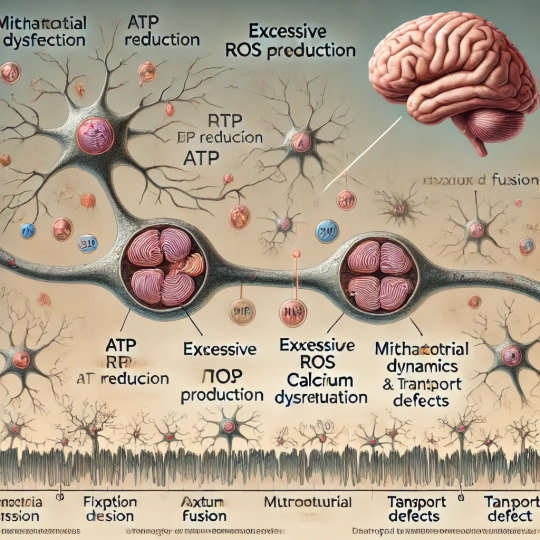#Sleep optimization
Explore tagged Tumblr posts
Text
3. RingConn Gen 2, World’s First Smart Ring with Sleep Apnea Monitoring, No APP Subscription, 12-Day Battery Life, Stress/Heart Rate/Women’s Health Tracker, Android & iOS Compatible (Silver, Size 10) (⭐️ 4.3) The key benefit of the RingConn Gen 2 is its accurate tracking features, including sleep apnea monitoring, stress, heart rate, and women’s health tracking, all without the need for a…
#advanced sleep technology#best sleep trackers 2023#digital sleep solutions#health and wellness#high-end sleep trackers#premium sleep trackers#sleep monitoring devices#sleep optimization#smart sleep gadgets#wearable sleep tech
0 notes
Text
Unlock 3 Revolutionary Sleep Hacks for Shift Workers: Reclaim Your Rest NOW!
Unlock 3 Revolutionary Sleep Hacks for Shift Workers: Reclaim Your Rest NOW! Hey there, fellow night owls, early birds, and everyone in between who dances to the beat of a different drum – I’m talking to you, the incredible **shift workers** who keep our world spinning 24/7! If you’re reading this, chances are you know the struggle is real. You’ve probably experienced that nagging exhaustion,…
0 notes
Text
How to Optimize Your Bedroom for Deep, Restorative Sleep
Optimize Your Bedroom Do you wake up feeling groggy, even after a full night’s sleep? The problem might not be how long you sleep, but how well you sleep. Your bedroom environment plays a crucial role in determining whether you get shallow, fragmented rest or deep, restorative sleep. From lighting and temperature to mattress choice and noise levels, small tweaks can make a huge difference. In…
#bedroom setup#better sleep#deep sleep tips#healthy sleep habits#how to sleep better#restorative sleep#Sleep environment#sleep hygiene#Sleep Optimization#Sleep Quality
0 notes
Text
How to Hack Your Sleep Cycle for Better Productivity
https://books2read.com/u/3Jk9KA

#Sleep cycle#Productivity hacks#Better sleep#Sleep optimization#Sleep science#Improve productivity#Sleep quality#Restful sleep#Healthy sleep habits#Sleep hygiene#Circadian rhythm#REM sleep#Deep sleep#NREM sleep#Sleep stages#Melatonin production#Cortisol levels#Chronotype#Polyphasic sleep#Monophasic sleep#Ultradian rhythms#Work performance#Cognitive function#Focus and concentration#Memory consolidation#Creative thinking#Decision-making skills#Mental clarity#Energy management#Time management
0 notes
Text
Sleep Hygiene in Concussion Recovery
By improving sleep hygiene, individuals can support their brain's healing and recovery process, reduce the risk of developing post-concussion syndrome, and improve their overall health and well-being. If you are recovering from a concussion, make sure to prioritize sleep hygiene and follow these tips to get the restful sleep you need to support your recovery.
#Sleep hygiene#concussion recovery#traumatic brain injury#sleep disturbances#restful sleep#brain healing#recovery tips#sleep optimization#concussion symptoms#sleep management.
0 notes
Text
Sleep Hygiene 2025: 7 Science-Backed Upgrades Your Night Routine Is Missing
Tired of counting sheep? Discover 2025’s jaw-dropping sleep upgrades that actually work. Your all-nighter survival guide starts here. 😴✨
Struggling with insomnia? 2025’s sleep upgrades debunk melatonin myths & reveal science-backed tools for shift workers. Transform your nights now. INTRODUCTION Hook: “I’ve tried everything—melatonin, white noise, bedtime yoga. Why am I still exhausted?” Sound familiar? You’re not alone. A 2024 Sleep Health Journal study found 68% of adults report daily fatigue despite “perfect” routines. The…
#CBT-I techniques#circadian lighting#circadian rhythm reset#cooling pillows#insomnia solutions#melatonin myths#non-pharmacological sleep tools#shift worker sleep tips#sleep hygiene 2025#sleep hygiene myths#Sleep optimization#sleep tech 2025
0 notes
Text
Mitochondrial Dysfunction Drives Cognitive Decline
Introduction
Mitochondria, often referred to as the powerhouses of the cell, are crucial organelles responsible for energy production through adenosine triphosphate (ATP) synthesis. Beyond their well-known role in energy metabolism, mitochondria regulate a wide range of cellular processes, including calcium homeostasis, reactive oxygen species (ROS) generation, and apoptosis. When mitochondria malfunction, the consequences can be far-reaching, especially for energy-intensive organs like the brain. Recent research highlights mitochondrial dysfunction as a central factor in cognitive decline, contributing to neurodegenerative diseases such as Alzheimer’s, Parkinson’s, and Huntington’s disease. This article explores the mechanisms by which mitochondrial dysfunction impacts cognitive function and discusses potential therapeutic strategies.
The Brain's Energy Demands and Mitochondrial Function
The human brain, despite accounting for only about 2% of body weight, consumes approximately 20% of the body’s energy. Neurons, the primary cells of the nervous system, rely heavily on mitochondrial ATP to sustain synaptic activity, ion gradient maintenance, and neurotransmitter synthesis. Efficient mitochondrial function is critical for maintaining neuronal health and connectivity, which are foundational for learning, memory, and other cognitive processes.
Mechanisms of Mitochondrial Dysfunction in Cognitive Decline
Reduced ATP Production: Mitochondria produce ATP through oxidative phosphorylation (OXPHOS) in the electron transport chain (ETC). Damage to ETC components, often caused by genetic mutations or oxidative stress, can reduce ATP production. Energy-starved neurons may fail to maintain synaptic function, leading to cognitive impairments.
Excessive ROS Generation: While ROS are natural byproducts of mitochondrial activity and play roles in cell signaling, excessive ROS can damage mitochondrial DNA (mtDNA), proteins, and lipids. This oxidative damage exacerbates mitochondrial dysfunction, creating a vicious cycle that contributes to neuronal degeneration.
Impaired Calcium Regulation: Mitochondria help buffer intracellular calcium levels, which are critical for neurotransmitter release and synaptic plasticity. Dysfunctional mitochondria may fail to regulate calcium, leading to excitotoxicity—a condition where excessive calcium causes neuronal injury and death.
Mitochondrial Dynamics: Mitochondria constantly undergo fission (division) and fusion (joining) to adapt to cellular demands and maintain their integrity. Imbalances in these processes can result in fragmented or overly fused mitochondria, impairing their function and transport within neurons.
Mitochondrial Transport Defects: Neurons have long axons and dendrites that require efficient transport of mitochondria to regions of high energy demand, such as synaptic terminals. Dysfunction in mitochondrial transport mechanisms can disrupt synaptic activity and contribute to cognitive decline.
Mitochondrial Dysfunction in Neurodegenerative Diseases
Alzheimer’s Disease (AD): Mitochondrial dysfunction is a hallmark of AD. Amyloid-beta plaques and tau tangles, characteristic of AD, have been shown to impair mitochondrial function. Elevated ROS levels and reduced ATP production exacerbate neuronal loss and cognitive decline in AD.
Parkinson’s Disease (PD): PD is associated with mutations in genes like PINK1 and PARKIN, which regulate mitochondrial quality control. Impaired mitophagy—the process of removing damaged mitochondria—leads to their accumulation, contributing to dopaminergic neuron degeneration and motor as well as cognitive deficits.
Huntington’s Disease (HD): In HD, mutant huntingtin protein interferes with mitochondrial dynamics and function, resulting in energy deficits and increased oxidative stress. These mitochondrial abnormalities contribute to the progressive cognitive and motor decline observed in HD patients.
Diagnostic and Therapeutic Approaches
Biomarkers of Mitochondrial Dysfunction: Advances in molecular biology have identified potential biomarkers, such as altered mtDNA levels, ROS, and metabolites associated with mitochondrial pathways. These biomarkers can aid in early diagnosis and monitoring of neurodegenerative diseases.
Pharmacological Interventions:
Antioxidants: Compounds like coenzyme Q10, vitamin E, and MitoQ target mitochondrial ROS, reducing oxidative damage and preserving mitochondrial function.
Mitochondrial Biogenesis Enhancers: Agents like resveratrol and PGC-1α activators promote the production of new mitochondria and improve mitochondrial health.
Calcium Modulators: Drugs that stabilize calcium levels, such as memantine, may protect neurons from excitotoxicity.
Gene Therapy: Gene-editing tools like CRISPR/Cas9 offer potential to correct mtDNA mutations or enhance the expression of genes involved in mitochondrial quality control. For example, boosting PINK1 or PARKIN expression could improve mitophagy in PD.
Lifestyle Interventions:
Dietary Interventions: Ketogenic diets and intermittent fasting have been shown to enhance mitochondrial function by promoting efficient energy utilization and reducing ROS.
Exercise: Regular physical activity stimulates mitochondrial biogenesis and reduces oxidative stress, offering neuroprotective benefits.
Sleep Optimization: Adequate sleep is essential for mitochondrial repair and the clearance of damaged proteins, such as amyloid-beta.
Future Directions in Research
Understanding the interplay between mitochondrial dysfunction and cognitive decline opens new avenues for research and therapy. Emerging technologies, such as single-cell transcriptomics and advanced imaging, allow for detailed exploration of mitochondrial dynamics in neurons. Additionally, the development of mitochondria-targeted drugs and nanotechnologies holds promise for precise therapeutic interventions.
Conclusion
Mitochondrial dysfunction plays a pivotal role in driving cognitive decline and is implicated in the pathogenesis of various neurodegenerative diseases. Addressing mitochondrial health through targeted therapies, lifestyle modifications, and early diagnostic measures offers hope for mitigating cognitive impairments and improving quality of life. As our understanding of mitochondrial biology deepens, so too does the potential for innovative treatments that could transform the landscape of neurodegenerative disease management.

#Mitochondrial dysfunction#Cognitive decline#Neurodegenerative diseases#Alzheimer\u2019s disease (AD)#Parkinson\u2019s disease (PD)#Huntington\u2019s disease (HD)#ATP production#Oxidative phosphorylation (OXPHOS)#Reactive oxygen species (ROS)#Mitochondrial DNA (mtDNA)#Calcium homeostasis#Synaptic activity#Excitotoxicity#Mitochondrial dynamics#Mitochondrial fission and fusion#Mitophagy#Mitochondrial transport#Biomarkers#Antioxidants#Mitochondrial biogenesis#Gene therapy#CRISPR/Cas9#Lifestyle interventions#Ketogenic diet#Exercise#Sleep optimization#Neuronal health#Therapeutic strategies
0 notes
Text
Managing Post-Exertional Malaise: Finding Balance and Peace in Life with ME/CFS
A Gentle Reflection on Pacing, Rest, and Navigating the Challenges of Chronic Fatigue Syndrome There are days when the body speaks softly, a whisper of weariness that hints at the storm ahead. And though we move carefully, mindful of each step, there are moments when the smallest effort—a turn of the mind, a spark of emotion—awakens something deeper. This is the dance with post-exertional…
#brain fog#chronic fatigue#chronic fatigue syndrome#chronic illness#chronic illness flare-ups#chronic illness support#chronic pain#coping with PEM#emotional self-care#energy envelope#energy pacing#Fatigue management#Gentle exercise#health#living with chronic illness#managing fatigue#Managing ME/CFS Symptoms#ME/CFS#mental fatigue#Mind-body connection#mindful rest#pacing strategies#post-exertional malaise#Post-Viral fatigue#Relaxation techniques#rest and recovery#self-care for chronic illness#sleep optimization#wellness and chronic illness
0 notes
Text
Sleep Your Way to Smarter: How Quality Sleep Impacts Brain Plasticity and Learning
Imagine your brain as a bustling city at night. While you sleep, construction crews are hard at work, reshaping the urban landscape, building new roads, and strengthening existing infrastructure. This nocturnal transformation is a metaphor for the remarkable process of brain plasticity, the brain’s ability to reorganize itself by forming new neural connections. And just as a city’s infrastructure…
0 notes
Text
Comprehensive Guide to Hormone Balance: Nutrition, Exercise, Supplements, and Medical Interventions
Hormones, they’re these tiny little messengers in your body that do so much, you wouldn’t believe. They regulate almost everything: metabolism, mood, growth, and even how well you sleep at night. If they get out of whack, it can lead to all sorts of problems, like gaining weight when you don’t want to, feeling tired all the time, or even more serious issues like diabetes or thyroid disorders.…

View On WordPress
#Exercise#Functional Medicine#Health and Wellness#Hormone Balance#Hormone Therapy#Nutrition#Sleep Optimization#Stress Management#supplements
0 notes
Text
3. Wireless Caregiver Pager Motion Sensor Alarm Indoor Room Bed Alarms and Fall Prevention for Home/Elderly/Dementia and Kids (1 Plug-in Receiver and 1 Motion Sensor) (⭐️ 4.4) The key benefit of the Wireless Caregiver Pager Motion Sensor Alarm is that it provides peace of mind and fall prevention for caregivers of elderly or dementia patients. Customers rave about its effectiveness, ease of use,…
#bedroom environment#sleep health#sleep monitoring#sleep optimization#sleep quality improvement#sleep technology#sleep tracking#smart bedroom devices#smart home sleep#smart sleep environment sensors
0 notes
Text
Digital Detox 2025: How to Reduce Screen Time for a Healthier Life?
Digital Detox in 2025 In this blog, we will discuss Digital Detox 2025 and explore how reducing screen time can lead to a healthier life. Negative Effects of Excessive Screen Time 1. Eye Problems Spending long hours in front of a screen can cause eye fatigue, dryness, and blurred vision. This condition is known as “Digital Eye Strain.” 2. Sleep Deprivation The blue light emitted from…
#2025 Health Trends#AI in Healthcare#Community Support#Digital Health#Fitness#Fitness Trends#health#Healthy Lifestyle#Holistic Living#Mental Health#mindfulness#Personalized Health#Preventive Care#Preventive Healthcare#Sleep Optimization#Smart Gadgets#Sustainable Diet#Virtual Therapy#Wearable Technology#Wellness
0 notes
Text
How Can I Improve My sleep quality?
Unlocking the Secrets to Restful Nights Sleep quality is an aspect of your health and well-being. Many factors can affect how well you sleep, including your environment, habits, diet, and stress level. According to an online search, the following tips can help you sleep better at night: Follow a sleeping pattern. Even on weekends, try to go to bed and wake up at the same time daily. It supports…

View On WordPress
#Better Sleep#Good Night&039;s Sleep#Healthy Sleep Habits#Restful Sleep#Sleep Habits#Sleep Health#Sleep Hygiene#Sleep Improvement#Sleep optimization#Sleep Patterns#Sleep Quality#Sleep Routine#Sleep strategies#Sleep Tips#Sleep Wellness
0 notes
Text
How to Fall Asleep Faster: A Comprehensive Guide
In the labyrinth of existence, sleep stands as an enigmatic phenomenon, sometimes slipping through our grasp when we need it most. This comprehensive guide embarks on an exploration of diverse techniques that usher in the embrace of slumber, whether in the span of mere 10 seconds, a brisk 60 seconds, or a contemplative 120 seconds. Our voyage into the realm of sleep encompasses the scientific…

View On WordPress
#aromatherapy for sleep#bedtime rituals#better sleep habits#breathing techniques for sleep#caffeine and sleep#evening meals and sleep#falling asleep quickly#herbal sleep aids#holistic sleep approach#journaling for sleep#mindfulness meditation#physical activity and sleep#progressive muscle relaxation#restful sleep#screen time and sleep#seeking professional help for sleep#sleep benefits#sleep environment#sleep insights#sleep optimization#sleep quality#sleep schedule#sleep strategies#sleep techniques#sleep tips
0 notes
Text

A whole new meaning to Gay Chicken.
(For: Anonymous raffle winner!)
#poorly drawn mdzs#mdzs#wei wuxian#lan wangji#This prompt was super cute! Thank you for donating to the raffle!#And thank you to everyone who also donated!#Okay full disclosure I am on very little sleep right now so these next thoughts may be incomprehensible.#(That hasn't stopped me before. Sometimes the voices of the hat man give me good ideas.)#I have been vibrating with excitement for when we finally get to the chicken scene.#Because I really want to draw chickens! I love chickens! They are so optimally shaped for maximal cuteness.#That's a creature that was designed to be fluffy and sit on things. What is there to *not* love!#I know there is more significance to the whole exchange but really...I think Lan Wangji deep down just wants to hold cute creatures.#His hands are big and gentle and not meant for swords! They are made to be filling rabbit hutches with fresh hay and petting chickens.#This is to say; Lan Wangji's problems could all have been avoided if he was a farmboy.#He can still be a farmer. The two of them could run off into the country and start something new.#"True love is possible only - in the next world - for new people” Is a disco elysium quote I think about for wangxian all the time.#Ah but that's a different tangent. Look forwards to more art tomorrow!
1K notes
·
View notes
Text

don't look at me
@the-elder-polls — hello! it is tcs friday, so i wanted to share this piece i made of my ldb road, who enjoys magic, extreme mountain climbing, and never talking about herself, ever. don't worry about it. she's definitely not lying about her name or her age or any significant personal information like that. the mask is just a fashion statement. don't—don't worry about it.
(she's sixteen. she only started going by road because she thought she got carted to helgen for being an enemy of the thalmor, so when hadvar revealed no one had any idea who she was she was so startled she just blurted out the name of the first thing she saw. which was the road. somehow no one has caught on to the fact that this is a really weird and suspicious name for an altmer to have, even if their parents didn't like them very much. she's come to genuinely prefer it over her original given name, but she's been living in horrible teenage anxiety about it for so long that it hasn't once occurred to her that maybe introducing herself like that at this point is not, in fact, lying, and therefore road does not, in fact, have to feel incredibly guilty about it.
she still does, because she's a emotional disaster masquerading as a functional and mentally stable adult, but she'll get there.
…eventually.)
#skyrim#tes#my art#eye contact tw#wanted to play around with a limited color palette and this was the result!#originally this was gonna be traditional but then i got my crayons mixed up while rendering (oops) so now it's digital instead#thank you ms paint you were probably not the most optimal program to use but you were the one i had and you got the job done#i am still never attempting to create anything as complicated as a dragon priest mask in you ever again#or at least not until i no longer see the line tool every time i'm trying to sleep#line tool. my friend. my lover. my nemesis. my oppressor.#will the image of you ever fade from my eyes…#uhhh. obligatory no ai-training disclaimer… apology for anyone who really hates the color blue… i think that's it? that's probably it#okay byeeeeeee
154 notes
·
View notes